Romero: You Live on In Our Struggle
BY NATALIE TERRY | May 22, 2015
Natalie Terry is participating in the events surrounding Archbishop Oscar Romero’s beatification in El Salvador and will be sharing reflections about her experience throughout the weekend. Natalie is a graduate of John Carroll University ’10 and the Jesuit School of the Theology of Santa Clara University ’14 and is currently in further studies at JST. Other reflections can be found here.
Let us not look for immediate solutions. We can’t try to organize all at once a society that has been so badly organized for so long. But, yes, let’s organize a conversion of hearts. Some know how to live in the austerity of the desert, they know how to savor the strong redemption of the cross. They know that there is no greater joy than earning your bread with the sweat of your brow and that there isn’t a more diabolical sin than to take bread from the hungry.
Archbishop Oscar Romero | February 24, 1980
I woke up yesterday morning on the plane in just enough time to catch a glimpse of the Salvadoran coastline on the approach to the airport. The man seated next to me on the plane was perplexed at the half full flight. He’s a surfer and a frequent visitor of El Salvador’s beaches. Apparently, this flight is typically almost empty and to him, half full seemed like completely full. He asked me if I knew if something special might be going on this weekend and from there we launched into a conversation about Oscar Romero. He didn’t know who he was or about the Salvadoran Civil War. He certainly didn’t know about the United States government’s involvement in monetarily supporting and training soldiers of the corrupt military regime that terrorized the country for the thirteen year long war. He was surprised at what he heard of the all-to-hidden history of his beloved vacation home.
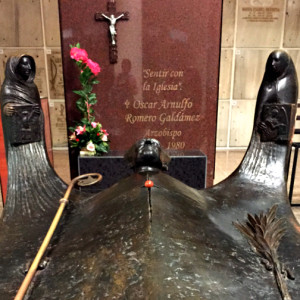 He wasn’t too much older than me (I was born in 1988), which means that he was probably not alive when Romero was killed and potentially too young to grasp news that the Salvadoran Civil war was over in 1992. For those of us born in the last two generations, it is all too easy for this history to pass us by. It’s complicated, scandalous and, in the eyes of some, dangerous for us to know and remember because the stories we might learn about and the people we might come to know about will share with us a truth that we will not be able to forget. Hidden in the hills and countryside of El Salvador are the stories, some told and many untold, of people whose lives were ravaged by the violence of the Civil War.
He wasn’t too much older than me (I was born in 1988), which means that he was probably not alive when Romero was killed and potentially too young to grasp news that the Salvadoran Civil war was over in 1992. For those of us born in the last two generations, it is all too easy for this history to pass us by. It’s complicated, scandalous and, in the eyes of some, dangerous for us to know and remember because the stories we might learn about and the people we might come to know about will share with us a truth that we will not be able to forget. Hidden in the hills and countryside of El Salvador are the stories, some told and many untold, of people whose lives were ravaged by the violence of the Civil War.
We, as an Ignatian Family, have heard these stories, the truth has been handed down to us and we have a responsibility to share that truth with the world. We may be overwhelmed by the truth, but we also know that, “we cannot do everything and there is a sense of liberation in realizing that.” [Archbishop Oscar Romero Prayer: A Step Along the Way] So, this weekend, in honor of Romero, recall a story about him or the history of El Salvador or learn about one and share it with someone you know and offer it to God as a prayer of sorrow and hope for our world.
Just before stepping off the plane, the surfer seated next to me asked to see a picture of Romero. He wanted to remember him this weekend. Ignatian Family, we carry Romero in our hearts, let’s share his witness with the world. This is the first step along the way to justice.
Inscription at Romero’s tomb: “They killed you because you were with us, the poor. They tried to eliminate us, but you have not died. You live on in our struggle.”
Natalie Terry is director of the Ignatian Spiritual Life Center, a ministry of St. Agnes Parish in San Francisco, CA. She has a Masters of Divinity from the Jesuit School of Theology of Santa Clara University in Berkeley, California. She is currently working on her thesis for a Licentiate in Sacred Theology in the area of sacramental theology. She graduated from John Carroll University in 2010 with Bachelor of Arts in religious studies and served as a volunteer with the Sisters of the Humility of Mary in Pulaski, Pennsylvania. Natalie has been a facilitator and prayer leader with the Ignatian Solidarity Network, and she serves as a lay preacher, lector, Eucharistic minister and presider of Communion services and Liturgies of the Word. She is also currently serving as the Director of Children’s Faith Formation at St. Agnes Parish. She is originally from Wynantskill, New York.

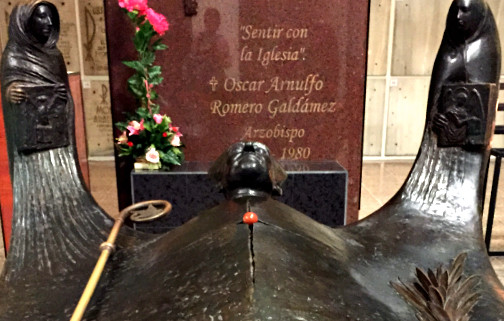
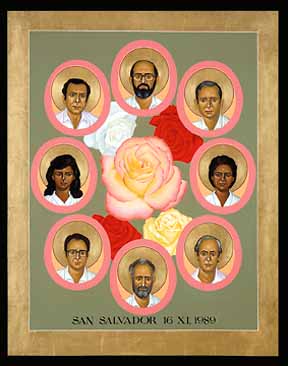
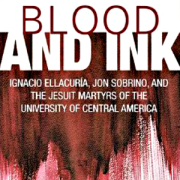
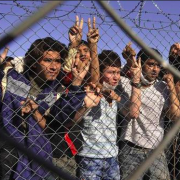

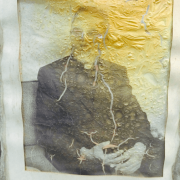
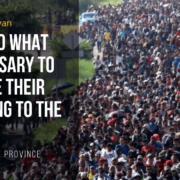



Thank you for this, Natalie. I am encouraged and emboldened by your witness and testimony, as you, as a young(er) person, are keeping him alive and sharing with others. May you have a blessed and transformative pilgrimage in El Salvador. Pax et justitia.